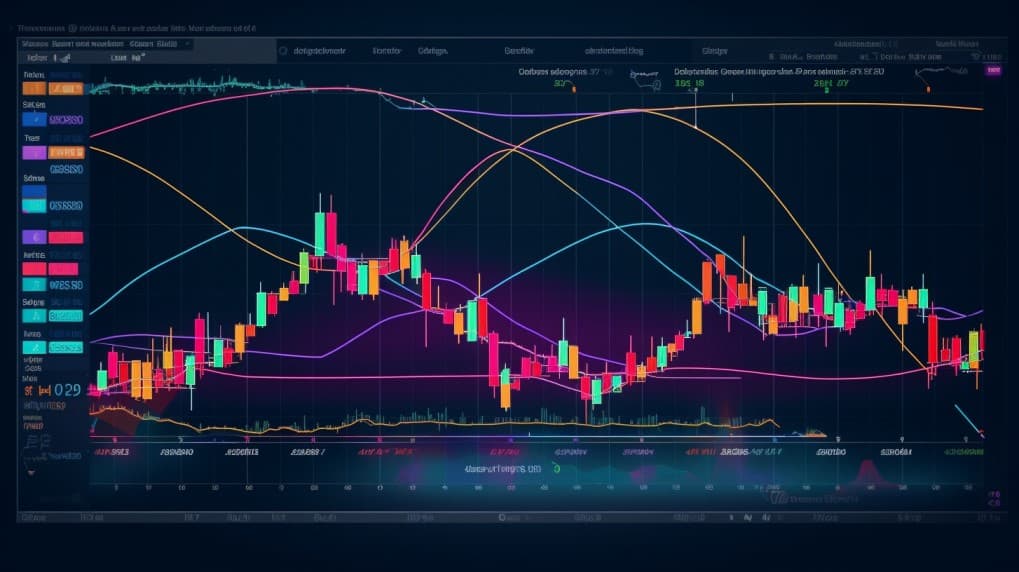
How does the DEFI ETF work?
In recent times, the finance sector has witnessed a monumental shift, thanks to Decentralized Finance (DeFi). It’s a novel way to execute financial transactions through applications, without intermediaries like banks or brokers. Following this trend, Exchange Traded Funds (ETFs) have also made their way into DeFi, creating a new breed of ETFs known as DEFI ETFs. This article aims to elaborate on DEFI ETFs, their underlying mechanisms, benefits, and considerations before investing.
DEFI ETF: Overview
DEFI ETF refers to a basket of DeFi assets traded on traditional exchanges. Unlike regular ETFs, which typically track indices, commodities, or baskets of assets, DEFI ETFs are specifically focused on the decentralized finance sector. They offer a way for investors to gain exposure to multiple DeFi assets through a single investment, providing a simplified avenue to tap into the burgeoning DeFi market.
DEFI ETF: Underlying and Exposure: What Does It Track and How?
DEFI ETFs usually track a collection of DeFi tokens from various projects operating in the space. These projects might range from lending and borrowing platforms to decentralized exchanges (DEXs) and asset management platforms. The DEFI ETF aims to replicate the performance of its underlying assets, offering a diversified exposure to investors keen on the DeFi space but reluctant to manage individual tokens.
The working mechanism of DEFI ETF involves buying and holding the basket of DeFi tokens in a way that mirrors their actual market distribution. In doing so, it reflects the overall performance of the DeFi market, minus the hassle of managing multiple tokens.
 DEFI overlap How does work the DEFI ETF?
DEFI overlap How does work the DEFI ETF?
DEFI ETF: Benefits of Investing
Investing in a DEFI ETF can offer a host of benefits:
Diversification: DEFI ETFs allow investors to diversify their portfolios across various DeFi projects with a single investment, reducing the idiosyncratic risks associated with individual tokens.
Accessibility: They provide an easy way for traditional investors to gain exposure to the DeFi sector without having to navigate through the often complex world of decentralized finance.
Liquidity: Being traded on traditional exchanges, DEFI ETFs offer higher liquidity compared to dealing in individual DeFi tokens on decentralized platforms.
Professional Management: DEFI ETFs are managed by professional fund managers who make informed decisions about asset allocation, providing a level of expertise that individual investors might lack.
DEFI ETF: Considerations Before Investing
However, investing in DEFI ETFs is not without its set of considerations:
Cost: There might be management fees associated with DEFI ETFs which can eat into your profits.
Market Risk: Like all investments, DEFI ETFs are subjected to market risks. The volatility inherent in the crypto space can lead to significant price swings.
Regulatory Uncertainty: The evolving regulatory landscape around DeFi and crypto assets might pose a challenge for DEFI ETFs and their investors.
Smart Contract Risk: The underlying DeFi platforms and tokens are powered by smart contracts which are prone to bugs and exploits, adding an extra layer of risk.
Conclusion
DEFI ETFs present a bridge between traditional finance and the blossoming world of decentralized finance. They offer diversification, accessibility, and relative simplicity to investors keen on gaining exposure to the DeFi sector. However, the associated costs, market risks, and regulatory uncertainties are factors that investors must weigh carefully before venturing into DEFI ETFs. As the DeFi space continues to evolve, it’s likely that DEFI ETFs will garner significant attention, forging a path for mainstream adoption of decentralized finance assets.
Sources
DeFi Pulse. (2023). DeFi Pulse Index (DPI). Retrieved from https://defipulse.com/
Investopedia. (2023). What Is a DeFi Exchange-Traded Fund (ETF)? Retrieved from https://www.investopedia.com/
ETF Trends. (2023). DeFi ETFs: The Future of Finance? Retrieved from https://www.etftrends.com/
DEFI ETF issuer
DEFI ETF official page
DEFI quote and analysis
Discover the top holdings, correlations, and overlaps of ETFs using our visualization tool.
Our app allows you to build and track your portfolio.
To learn more about the DEFI Hashdex Bitcoin Futures ETF, access our dedicated page now.
FAQ
What is the DEFI ETF?
The DEFI ETF is an exchange-traded fund that provides investors with exposure to a specific sector.
What is the underlying index that the DEFI ETF aims to track?
The DEFI ETF aims to track the performance of a specific index, which includes companies involved in its respective sector.
What types of companies are included in the DEFI ETF?
The DEFI ETF includes companies from its focused industry.
How does the DEFI ETF work?
The DEFI ETF functions by pooling investors' capital to purchase a diversified portfolio of sector-related stocks.
What are the advantages of investing in the DEFI ETF?
Investing in the DEFI ETF offers exposure to a specialized sector with potential for growth.